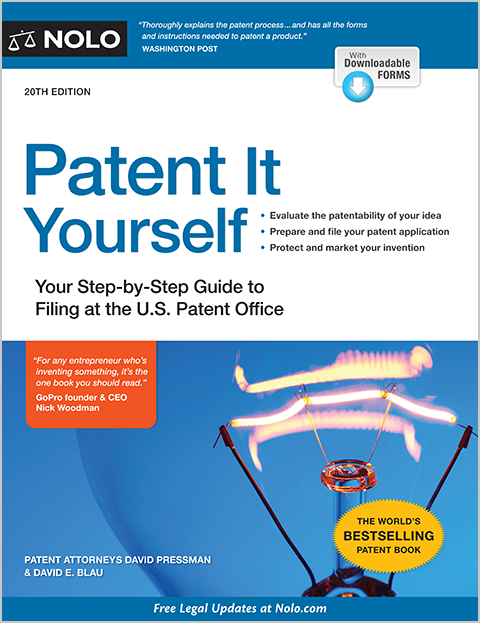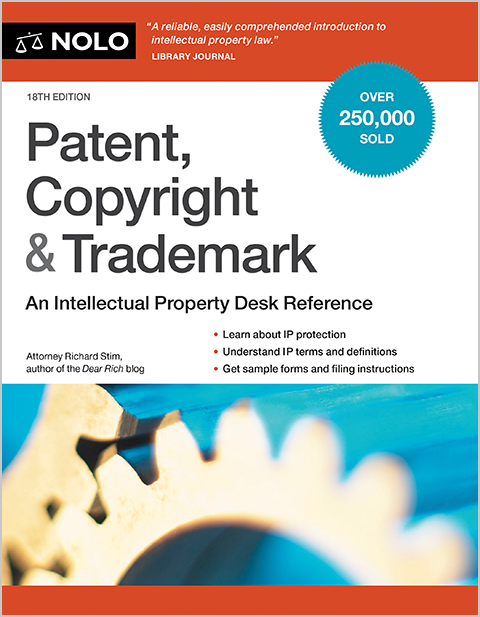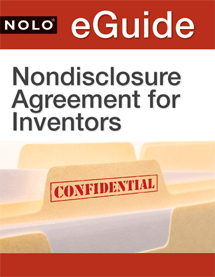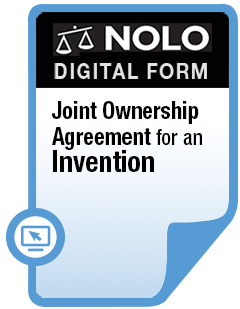Before you can finalize a trademark for your business or product, you must first ensure that no one else is using that same mark.
Your brand—the name you use for your business, product, or service in the marketplace—also known as a "mark"—is an important business asset. Before you start using the mark or try to register it as a federal trademark, you should do a trademark search to determine whether your proposed mark is available to use or whether another business is already using the name or has already registered it as a trademark.
What Is a Trademark Search?
A "trademark search" is a search for conflicting marks—names, logos, or slogans that are the same as or very similar to your proposed mark and used on products or services similar to yours. You should check to see whether these potentially conflicting marks are similar to your mark in:
- appearance
- sound, or
- commercial impression (consumers' overall perception).
For instance, suppose you want to use the name "Happy Days Ranch" for a pumpkin patch and corn maze farm. But when you do a trademark search, you find another corn maze called "Happy Daze Ranch." While "days" and "daze" are two different words, they still sound the same. As a result, customers who are talking about the two ranches could get confused. So you might run into issues using or registering your mark when there's another similar mark out there.
If you find conflicting marks already being used or registered, you might need to rethink your proposed mark. On the other hand, if you don't find conflicting marks, you likely have a clear path to using and possibly registering your mark as a trademark.
Why Should You Do a Trademark Search?
The purpose of a trademark search is to assess the legal risk of using or registering your trademark. People often run a trademark search before they file a trademark application with the United States and Patent Trademark Office (USPTO).
When a trademark application is reviewed, the trademark examiner (the person reviewing your mark) does their own trademark search of conflicting marks in the trademark database. If they find a conflicting mark, then they'll refuse the mark's application to register. So it's a good idea to do your own trademark search before filing an application and paying the nonrefundable fees.
If you skip a trademark search, you run the risk of having to rebrand your business, product, or service if it turns out that another company has rights to the name, logo, or slogan. Also, if you start using a brand that someone else has already trademarked, you could be liable for trademark infringement.
For all these reasons, a trademark search is a wise investment of your time (and possibly money).
If you have a logo or slogan in mind, you should also include them in your trademark search.
Types of Trademarks and Trademark Searches
Your trademark search can cover three types of trademarks:
- federally registered trademarks—what most people think of when they think of trademarks
- state registered trademarks—not widely used, but still worth checking in some cases, and
- unregistered trademarks—also known as "common law" trademarks
We discuss each type of search below.
Federal Trademark Searching
A "federal trademark" is a mark registered with the USPTO. The USPTO's Trademark Search system is freely available and can show you what marks have been registered in what trademark classes. (A "trademark class" is a category of goods or services.) The USPTO registry includes:
- all currently active (registered) marks
- no longer active ("dead") marks, and
- marks that have been applied for.
A federal trademark gives the trademark owner exclusive rights in the mark for designated goods or services throughout the country. However, unregistered marks can have priority over registered marks in a specific geographic territory (see discussion below).
In the USPTO's Trademark Search, you can search by name, design code (for logos), trademark class, and several other trademark elements. The most basic type of USPTO trademark search is a "knockout" or "direct-hit" search—a search for an exact or nearly exact name match in the same trademark class as your product or service. You can and probably should do a knockout search on your own, even if you plan to use a trademark attorney or online trademark search service (see discussion below) to do a more comprehensive search.
If you find an exact or nearly exact match to your proposed mark in the same trademark class, chances are you'd have difficulty registering the mark—someone beat you to it.
A deeper USPTO search would include similar-but-not-exact marks and goods or services related to yours but not necessarily in the same trademark class. For more information on doing a USPTO search and some excellent training videos and materials, visit USPTO.gov.
State Trademark Registries
All states allow companies that do business in the state to register a state trademark there. State trademark rights are only good within the state—you can't enforce them against a business using the same mark in another state. Plus, each state maintains its own state trademark registry, meaning that you need to search for the mark in multiple databases.
For these reasons, most businesses don't bother with state registration, preferring federal registration or relying on the rights they have in unregistered marks (see discussion below). Nevertheless, a state trademark registry is another place to look for conflicting marks that, in this case, might prevent you from being able to use your mark in that state.
If you use a trademark search service or trademark attorney to conduct a comprehensive search, they generally include a state trademark search.
Unregistered Trademarks
Not all trademarks are registered. Most businesses brand their products and services without registering the brands as federal trademarks. Product and service names used only within one state aren't even eligible for federal trademarking, as federal marks are available only for marks used in interstate commerce. However, unregistered marks can be protected as "common law trademarks."
The first company to use a mark in a geographic territory acquires trademark rights in the name in that territory (usually a state or part of a state); No sort of registration is required. Those common law trademark rights will have priority over another company's federal trademark in that territory, as long as the common law trademark was in use before the other company applied to register its trademark with the USPTO.
In other words, it's important to know whether anyone is already using the mark you have in mind, even if they haven't registered the mark. A search for such marks is called a common law trademark search.
A common law trademark search should at the very least include:
- an internet search that covers websites
- for consumer products, an internet search of shopping sites such as Amazon and Shopify, and
- a domain name search, which you can do through a domain registrar such as GoDaddy or IONOS.
Your experience in the marketplace—the ads you encounter on TV or online or on the radio, the products you see for sale in stores, etc.—can also inform your common law trademark search.
Analyzing the Search Results
Your federal, state (if applicable), and common law trademark searches might show marks similar or identical to your proposed mark already in use or registered. Keep in mind that those similar marks are problematic only if they apply to goods or services that are the same as or related to yours.
When Are Goods or Services Similar or Related?
The concept of goods or services being similar or related might seem simple or self-explanatory, but the issue might not be so straightforward. While there's no per se rule for determining the similarity or relatedness of goods and services, you can ask yourself some questions to analyze whether the USPTO or a court would find that the goods or services are sufficiently related.
You can ask yourself the following questions to get a better idea of whether goods and services are related:
- Would consumers encounter the goods or services in situations that would create an incorrect assumption that the goods or services originate from the same source?
- Would a single company or source manufacture both sets of goods or provide both sets of services?
- Could a consumer reasonably believe that if a company sells one product (one of the products in question), it could also sell another product (the other product in question)?
Keep in mind that goods can be related to services and vice versa. For example, running a brewery (a type of service) and manufacturing beer (a product) would likely be found as related. You could reasonably believe that a brewery would also make its own beer.
Example: Are These Goods Similar or Related?
For example, suppose your New Jersey startup company wants to brand its robotic pancake flipper as "The Flipper." In your trademark search, you find an existing federal trademark for The Flipper as a name for automobile windshield wipers. You also find an unregistered mark of a company in Ohio selling backyard trampolines called The Flipper. Windshield wipers and trampolines aren't similar or related to robotic kitchen appliances. Hence, the other "The Flipper" marks shouldn't prevent you from using the mark on your product or registering it.
Generally speaking, marks conflict only when they're applied to similar or related goods or services, such that consumers would be confused by the existence of the two identical or similar marks in the marketplace. It's unlikely that consumers would think that The Flipper pancake flipper comes from the windshield wiper or trampoline company, or vice versa.
Regarding federal registration, windshield wipers fall under Trademark Class 12, while a robotic pancake flipper would likely fall under Class 7 (for machines and tools), Class 11 (for appliances), or both. If two products are in different, unrelated trademark classes, it's unlikely that the USPTO would find them to be so similar or closely related that the same mark could not be registered for each. In other words, you could register The Flipper in Class 11, while the windshield wiper company can have its Class 12 registration.
DIY Search or Professional Search?
As mentioned above, you can do a preliminary (knockout) search on your own before committing to a more comprehensive search. A knockout search is a good place to start before you do a deeper dive into the USPTO database, a common law trademark search, and possibly a state trademark search. If you decide to proceed with a comprehensive search, you have three options for doing it:
- doing the search yourself
- using an online trademark search company, or
- hiring a trademark attorney.
DIY Searches
You can do a comprehensive search using the USPTO's Trademark Search tool and the internet. As mentioned above, you can find videos and other materials explaining how to search on Trademark Search at USPTO.gov.
But as good as those training resources are, recognize that structuring a search on Trademark Search and interpreting the results can be tricky. A search that's too broad can swamp you with dozens or even hundreds of results. A too-narrow search can cause you to miss potentially conflicting marks. And to properly interpret your search results, you need to understand how trademark classes work and how the USPTO evaluates similar marks for the potential of consumer confusion.
Online Search (and Registration) Services
Several online companies offer trademark search services for individuals and small businesses. These companies include:
- LegalZoom
- Markify, and
- TradeMark Express,
Some services bundle trademark searching and registration, but many offer standalone search services. Prices for search services vary from company to company, but most seem to charge $150-300 for a federal and state-registered trademark search and $300-600 for a comprehensive search (federal, state, and common law). For that money, you get the search and a search report identifying conflicting marks.
Trademark Attorneys
Your third option for a trademark search is hiring an attorney, usually to handle the search and the registration process. The attorney will usually conduct a trademark search (either themselves or by using an outside search service), provide an opinion on whether to proceed with the application, and prepare and file your application. Once they've filed the application, they'll usually oversee the application process, providing you with updates and communicating with the USPTO as needed.
Hourly rates for a trademark attorney can reach several hundred dollars, but many (perhaps most) trademark lawyers who work with small business clients will charge a flat fee for a basic registration. The flat fee can vary, but most fall in the $1,000-$3,500 range.
Remember that creating, using, and registering a trademark is an investment. While plenty of business owners forego a trademark search (and registration), it's still worthwhile to perform a search. How you perform the search and the depth of your research is up to you. But if you have the time or money, a thorough search is always better.
Talk to a Lawyer
Need a lawyer? Start here.
How it Works
- Briefly tell us about your case
- Provide your contact information
- Choose attorneys to contact you
- Briefly tell us about your case
- Provide your contact information
- Choose attorneys to contact you



